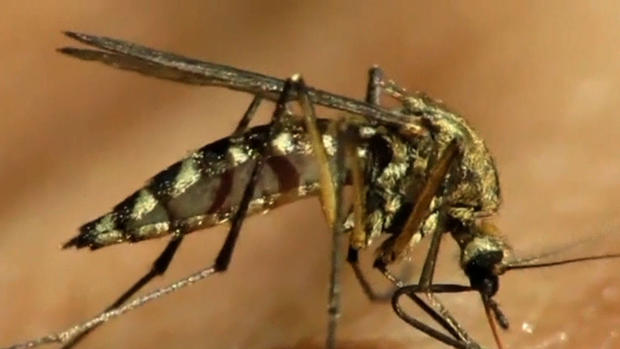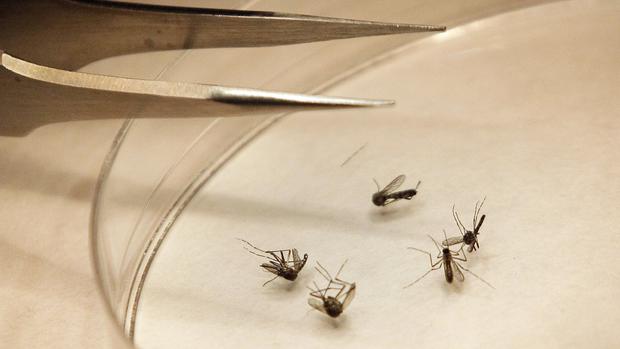CDC: 2,636 cases of West Nile virus so far in record 2012
(CBS News) Reported cases of West Nile Virus and deaths caused by the disease continue to rise, the Centers for Disease Control and Prevention (CDC) said during a press conference on Tuesday.
Forty-eight states have reported cases of West Nile infection in people, birds and mosquitoes, with Alaska and Hawaii the only exceptions. As of Sept. 11, there have been 2,636 cases of West Nile virus disease in people this year, including 118 deaths. Of these, 1,405 (53 percent) were classified as neuroinvasive or brain-related which includes infections like meningitis or encephalitis, and 1,231 (47 percent) were classified as non-neuroinvasive disease, sometimes referred to as West Nile fever. It is the highest number reported through September since a 2003 outbreak.
CDC reports 40 percent increase in U.S. West Nile virus cases
What's making the 2012 West Nile virus outbreak the worst ever?
West Nile virus outbreak: How to protect yourself
Two-thirds of all the cases have been reported from six states - Texas, Louisiana, South Dakota, Mississippi, Michigan, and Oklahoma - with 40 percent of all cases coming from Texas. Previously, Dallas County officials declared a state of emergency, and the city has undergone several aerial sprayings of insecticide to control the mosquito population.
Last week the CDC reported 1,993 cases of West Nile Virus across the U.S. with 87 deaths. Last month on August 14, the CDC only reported 693 cases of the disease and 26 deaths. Officials have said they expect the cases to increase through mid-October.
West Nile virus is a seasonal epidemic in North America that usually occurs in the summer and through the fall, according to the CDC. It spreads most often through infected mosquitoes but there is low risk for it spreading through transfusions, transplants, breastfeeding and during pregnancy from mother through baby. It is not transmitted through touching or kissing.
About 80 percent of people won't feel symptoms if they are infected, and 20 percent will have non-neuroinvasive disease characterized by fever, headache, body aches, nausea, vomiting and sometimes swollen lymph glands or a skin rash on the chest, stomach and back. Symptoms usually develop between 3 and 14 days after infection, and may last for several weeks.
In approximately one out of 150 people, West Nile virus can turn into a severe neuroinvasive illness with symptoms including high fever, headache, neck stiffness, stupor, disorientation, coma, tremors, convulsions, muscle weakness, vision loss, numbness and paralysis. These can persist for several weeks, and neurological effects can be permanent. People over 50 are at the highest risk for developing a severe illness. There is no treatment for West Nile virus currently, but people with severe reactions can go to the hospital for supportive treatment including intravenous fluids, help with breathing and nursing care.
Dr. Clifford W. Bassett, an allergist/immunologist at NYU Langone Medical Center in New York City, previously told CBSNews.com that humid weather and stagnant water has lead to the increased occurrences.
The CDC says that using insect repellent containing an EPA-registered active ingredient, wearing long sleeves and pants during dusk and dawn, having good screens on windows and emptying standing water can help lower the chance of infection.


